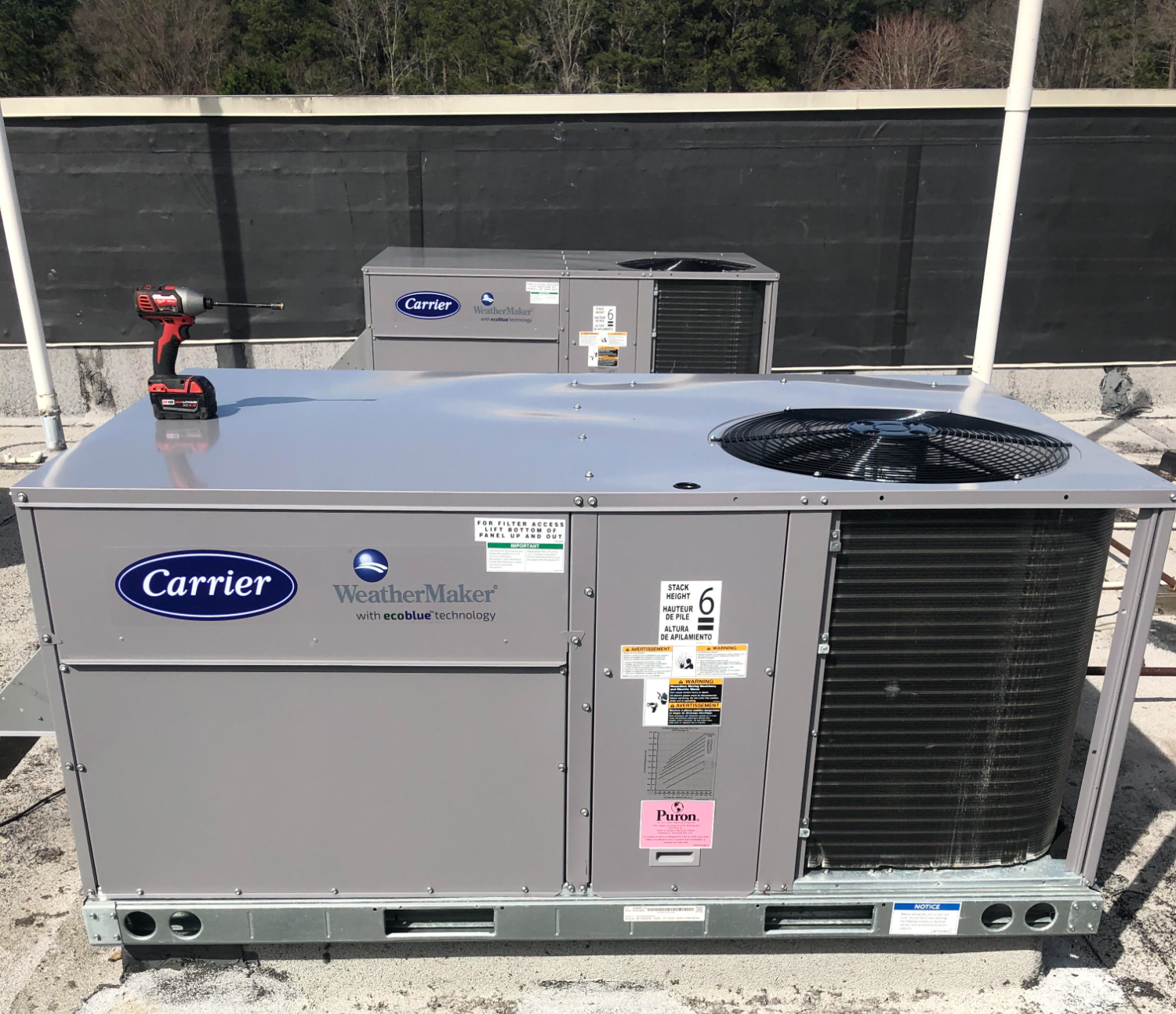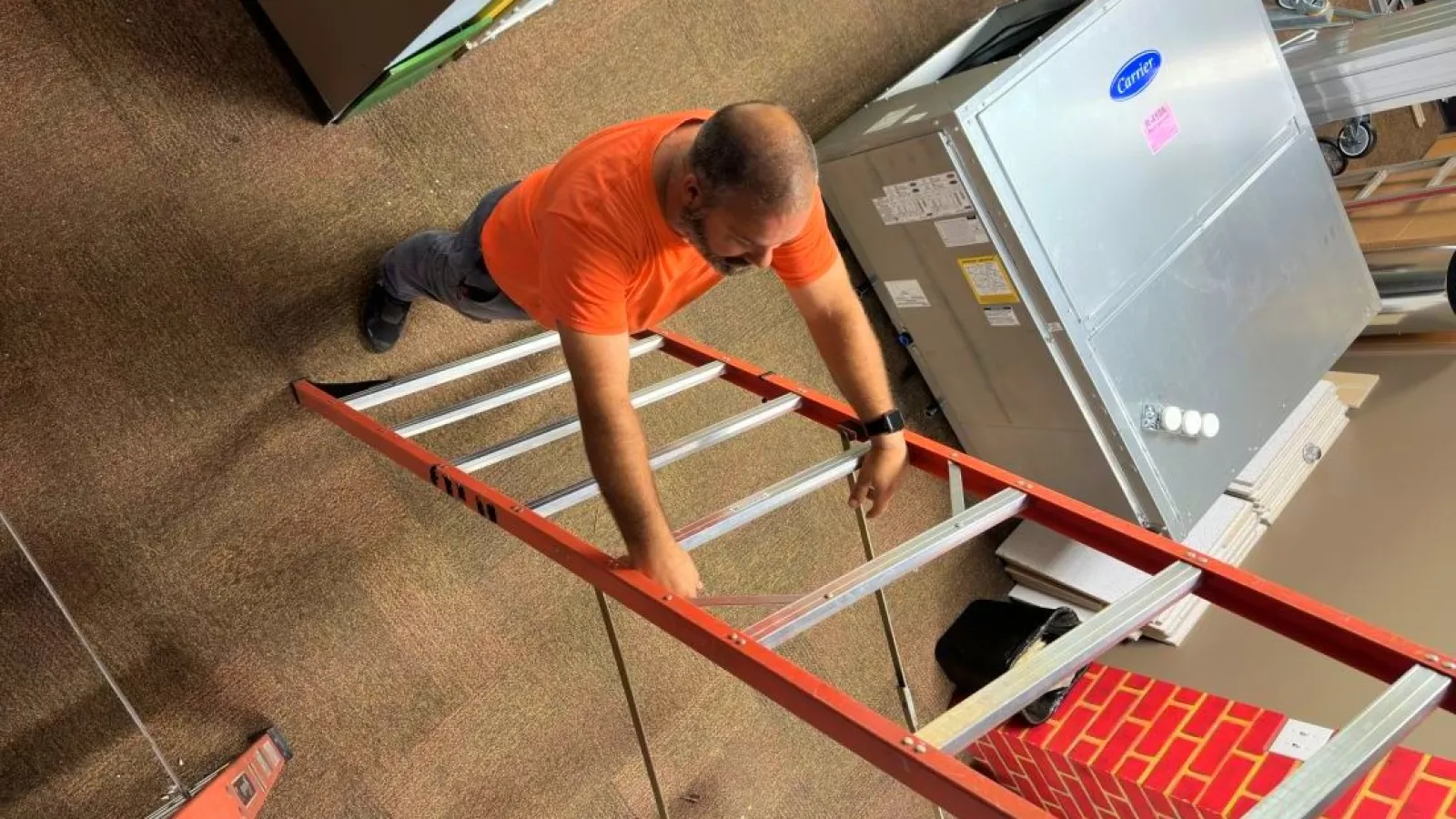There are many commercial HVAC systems to choose from, and
knowing which system is suitable for your building will depend on your specific
requirements. In this article, we will discuss the common types of HVAC systems
for commercial buildings, including:
●
Split systems, multi-split systems, and VRF
Systems
●
Rooftop unit (RTU) or packaged systems
●
Chiller systems
Knowing these common types of commercial HVAC systems can help
you select the right commercial HVAC solution for your
building. Continue reading to learn about your full options.
Single-Split System
Single-split systems comprise of two main components, which
hints at the "split" in its name. The single-split system has an
air-handling unit with an evaporator coil on the inside and a compressor and
condenser on the outside.
Both work in conjunction to remove and replace with hot or cool
air. A single-split system provides excellent benefits to your building's
heating and cooling needs. One of the common benefits of a split system is that
it heats or cools a single zone of your building, allowing for customizable
solutions for your comfort needs.
But, there are also some limitations associated with this
system. For one, a single-split system allows for a single zone, or room, to
provide comfortable heating and cooling to occupants.
This is only limited to one room, and, depending on your
preferences, the distance between the indoor and outdoor components should be
relatively close. The distance factor limits its capabilities, as the further
the distance, the more complicated the installation becomes.
Speak with an Estes Services expert HVAC team today for
single-split system installation for your building.
Multi-split System
Similar to the single-split system, a multi-split system builds
upon the single-split system. Instead of limiting your heating or cooling needs
to a single zone, you can heat or cool rooms with multiple indoor units from a
single outdoor unit.
As a result, with a multi-split system, you can save space,
personalize the comfort and control across zones in your building, and minimize
visual pollution on your property.
For instance, you can heat or cool up to 5 rooms each with
separate room controls. This makes for a more comfortable work space for all
occupants.
However, for large commercial spaces such as high-rise offices,
hotels, and schools, factors such as single-point electrical connections, less
refrigerant pipe brazing joints, and longer piping length can be achieved in a
VRF system.
VRF System
When simultaneous and individual zone heating and cooling is
necessary, a variable refrigerant flow (VRF) system is better suited for this
increased demand.
Although it's not so common here in the United States, VRF
systems help large commercial buildings, properties, and spaces fulfill the
dynamic needs they require.
A single modular Carrier VRF unit can connect up to 64 indoor
units, and it can operate on a 2-pipe design, allowing easy installation,
configuration, setup, and maintenance. This provides greater flexibility and
scalability for your building's systems and controls—for today and tomorrow.
If you are in the greater Atlanta area and have a commercial
space with dynamic heating and cooling needs across multiple floors, levels,
and zones, then a VRF system can be highly custom-catered to your commercial
building requirements.
Rooftop Unit (RTU) or
Packaged System
As the name suggests, rooftop units or packaged systems are
commonly used in commercial and industrial buildings, such as shopping malls,
warehouses, and large department stores.
These systems are ideal for single story buildings, as the air
can directly feed through a buildings ductwork and fill the space requirements
of larger buildings. Its integrability with pre-existing ductwork makes it easy
for new installations, which makes it a cost effective solution.
Additionally, it makes the servicing and repair process more
efficient since all of the equipment is in one place. See how our trained and
licensed technicians at Estes Services can help you choose the best RTUs that's
right for your building today. Schedule service today.
Chiller System
Chiller systems are used to move large amounts of warm air from
one location to another to chill. Water cooled and air cooled are the two types
of chiller systems used in many commercial buildings.
Water cooled systems are typically stored in the basement of
operating rooms, whereas air cooled systems are stored outside, commonly on
rooftops and on the side of buildings.
Industries including food and beverage, industrial
manufacturing, and other large commercial buildings that require moving
substantial amounts of hot or cool air use these systems. There are great
benefits with these systems.
First, it's important to note that they serve as a centralized
cooling system for entire buildings and provide ease of access for service and
maintenance, smoothing operational efficiency and a reduction in system
downtime.
Because of their practical nature, chillers are a safer option
in heavy commercial and industrial environments, as it minimizes the amount of
refrigerant lines and other equipment placed around the building.
Although they are significantly more expensive at the front end,
the cost-effectiveness over the long run has a better return on investment
(ROI) than traditional split systems.
Chiller systems are highly customizable and can be used with air handling units, floor and ceiling units, and much more. Speak with an Estes Services commercial HVAC technician today, and see how we can customize a solution specifically for your building.

Schedule Commercial HVAC Installation Consultation
As you can see, there are many different types of HVAC systems
for commercial buildings to choose from. Of course, each building has its own
unique operational needs. That's why it's best to employ the use of
professionals for expertise.
At Estes Services, we specialize in commercial HVAC services to
ensure your comfort, safety, and efficiency. In fact, since 1949, we have been
proudly serving the greater Atlanta area for your comfort needs.
Our knowledge and training in commercial HVAC services enable us
to provide you with top-quality services. Learn more about the type of system
that would work best for you in your HVAC installation, and schedule service today.

